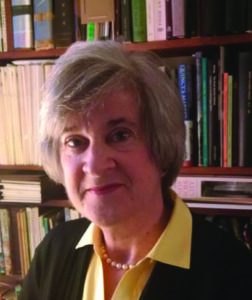Calendar of Events
Note: Meetings are usually held on the second Sunday of each month, September through May, from 2:00 to 4:00 p.m. Currently we are meeting via Zoom, but in-person meetings are held at the Bethesda-Chevy Chase Services Center, 4805 Edgemoor Lane, Bethesda, Maryland, and occasionally at other venues. The meetings are open to anyone. However, certain meetings may require a fee.

- This event has passed.
Movable Markets: Food Wholesaling in the 20th Century City
April 11, 2021 @ 2:00 pm - 4:00 pm
Speaker: Helen Tangires
Sunday, April 11
2:00 to 4:00 p.m.
Zoom Meeting
(Members will receive a link and passcode)
HELEN TANGIRES is Administrator of the Center for Advanced Study
in the Visual Arts at the National Gallery of Art in Washington, D.C., where
she has been employed since 1987. She holds a Ph.D. in
American Studies from The George Washington University.
A CHoW member, Helen is a frequent contributor to books and journals
on urban foodways. The lecture is a based on her most recent book, Movable Markets: Food Wholesaling in the Twentieth Century
City (Baltimore: Johns Hopkins University Press, 2019), the latest
volume in the Hagley Library Studies in Business, Technology,
and Politics series.
Movable Markets: Food Wholesaling in the Twentieth-Century City is the untold story of the evolutionary movement of the wholesale marketplace for fresh food in the United States from the central produce district to
planned industrial parks on the urban periphery. In the early decades of the twentieth century, progressive city planners and agricultural economists questioned the centrality, aging infrastructure, and organizational structure of wholesale markets in response to anxieties about the high cost of living, traffic congestion, and disruptions in the food
supply. They promoted the unification of wholesale dealers in standardized building complexes with covered platforms on large tracts of land with direct connection to water, rail, and road transportation—located on industrial sites and based on plans largely developed and disseminated
by the USDA. Tested in Washington, D.C., in the 1930s and implemented
with rigor after World War II, the USDA model for planned food markets on the urban periphery won the day and rendered many downtown
produce districts obsolete as wholesale dealers relocated to new truck-centered facilities located outside of the center city.